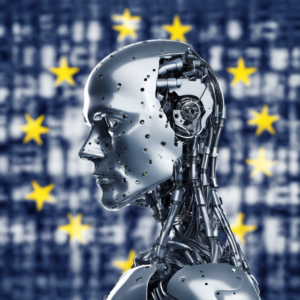Meta Plans to Integrate AI-Generated Content into Your Feeds

Meta’s New Approach to AI-Generated Content
Meta, one of the world’s leading social media platforms, is set to enhance its user experience by integrating Artificial Intelligence (AI) more deeply into its services. This move is expected to bring AI-generated posts into the feeds of both casual and regular users, sparking discussions about the future of content on social media.
Understanding AI-Generated Content
AI-generated content refers to material created by artificial intelligence systems without significant human intervention. This technology includes algorithms capable of writing, designing, and even generating videos. Meta’s interest in this technology underscores a broader trend within the tech industry, where companies increasingly rely on AI to streamline processes and enhance user engagement.
The Implications of AI in Social Media
1. Enhanced Personalization
One of the most significant advantages of AI-generated content is its ability to personalize user experiences. By analyzing user behavior and preferences, AI can create tailored posts that align more closely with what users want to see. This could improve user interaction and retention.
2. Increased Content Variety
AI can generate a diverse range of content, from news articles and social posts to visual art and videos. By incorporating more AI-generated content, Meta will provide users with a wider array of posts in their feeds, making the platform more dynamic and engaging. This increased variety can handle diverse content preferences among users.
3. Potential for Misinformation
While AI-generated content offers numerous advantages, it also presents challenges, particularly concerning misinformation. With the ability to create realistic-looking content, there is a risk that some AI-generated items could spread false information. This situation raises concerns about trustworthiness and credibility on social media platforms.
How AI-Generated Content Works
AI-generated content typically relies on sophisticated algorithms, particularly Natural Language Processing (NLP) and Machine Learning (ML). These technologies analyze data from existing posts, articles, and user interactions to generate new content. The process usually involves:
- Data Collection: Gathering vast amounts of data to understand trends and user preferences.
- Training Models: Using this data to train algorithms to recognize patterns and generate coherent text or visuals.
- Content Generation: Producing new posts that fit within the observed patterns, often styled similarly to popular content already circulating on social media.
What Users Can Expect
With Meta’s push into AI-generated posts, users may notice a blend of human and machine-created content in their feeds. Meta aims to balance originality and user engagement. Some features users might encounter include:
- AI-Enhanced Recommendations: Improved algorithm-driven suggestions based on user interaction.
- Dynamic Content Feeds: Fewer repetitive posts, as AI can generate fresh content tailored to individual interests.
- Experimentation in Formats: Alongside traditional text and media, AI might introduce innovative formats that blend visuals and narratives, captivating users’ attention.
Ethical Considerations and User Safety
The proliferation of AI-generated content raises important ethical questions regarding user safety and privacy. Companies like Meta must be diligent in ensuring transparent AI practices. Some recommended measures include:
- Clear Labeling: Identifying AI-generated content distinctly, so users are aware they are viewing machine-created material.
- User Control: Allowing users to adjust settings around AI-generated content to decide how much they want to engage with it.
- Monitoring Algorithms: Continuous evaluation of AI effectiveness in reducing misinformation while still fostering user engagement.
The Future of AI in Social Media
As Meta embraces AI technology, it signifies a pivotal shift in how we consume information on social media. By effectively leveraging AI, Meta hopes to innovate while navigating the complexities that come with such advancements. The balance between user engagement, ethical considerations, and the authenticity of content will define this evolution in the social media landscape.






